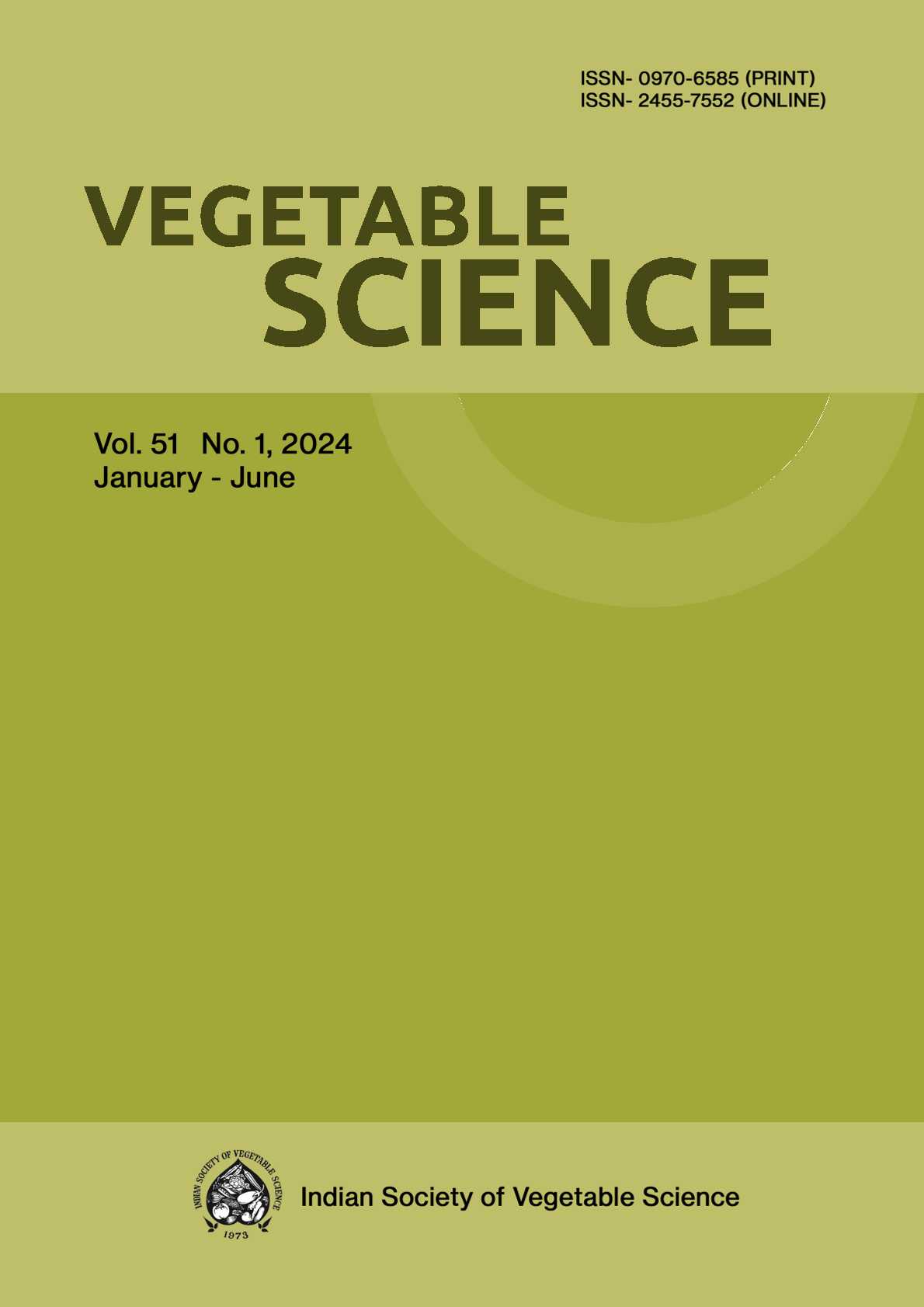VRPLK-2: A superior genotype of spinach beet for round the year cultivation
DOI:
https://doi.org/10.61180/vegsci.2021.v48.i2.09Keywords:
Spinach beet, Palak, Beta vulgaris L. ssp. vulgaris, Round the year, Biomass yield, Heat tolerant, Abiotic stressAbstract
The aim of present study on spinach beet was to evaluate
the performance of best performing genotypes during round
the year monthly sowing for two consecutive years in the
climes of northern Indian plains at ICAR-Indian Institute of
Vegetable Research, Varanasi, Uttar Pradesh. The marketable
biomass yield for VRPLK-2 was realized 136-887 q/ha during
round the year sowing which is 56-147% higher than check
variety All Green because of faster plant growth, 16-33 days
delayed-bolting habit and 1-2 more number of cutting(s).
Overall, the biomass yield of spinach beet was harvested
maximum during August to November sowing (Autumn &
Winter season crop) followed by December to February
sowing (Spring season crop) and minimum during March to
July sowing (Summer & Rainy season crop). Higher biomass
yield potential, delayed-bolting habit, faster plant growth,
more number of cutting, longer cropping period and wider
adaptability to different growing conditions & seasons for
genotype VRPLK-2 make it a unique genotype whose
genetic potential could be utilized in breeding programmes
to widen the genetic variability towards delayed bolting
habit and to increase the genotypic adaptability in varied
climates in spinach beet.
Downloads
Published
Issue
Section
License

This work is licensed under a Creative Commons Attribution-NonCommercial-NoDerivatives 4.0 International License.






